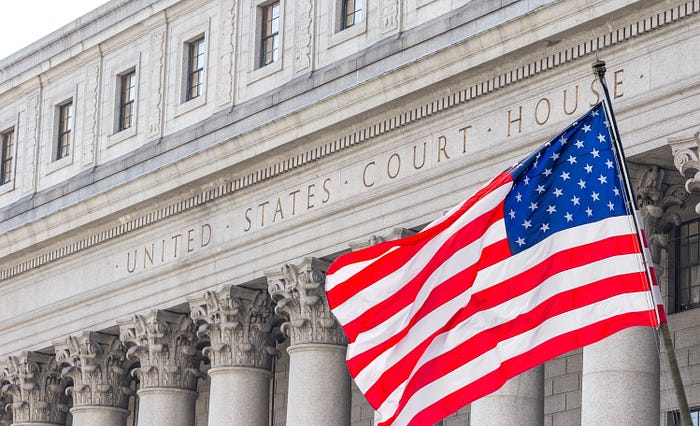Coerced Into Decentralization
As we see more projects and organizations in crypto bullied into submission by authorities, some people are questioning the future of the space.

As we see more projects and organizations in crypto bullied into submission by authorities, some people are questioning the future of the space. In contrast, others point to the increasing need for decentralization — a principle deeply rooted in the foundational whitepaper by Bitcoin creator Satoshi Nakamoto.
Despite Satoshi’s advocacy for decentralization, many of the most successful entities in this arena embrace a heavily centralized structure. Admittedly, centralization has its merits, such as swift growth and easy scaling. However, these centralized power structures have an Achilles’ heel — an inherent vulnerability stemming from their single points of failure.
Recent attacks on two of the largest crypto exchanges, Binance and Coinbase, by the U.S. Securities and Exchange Commission (SEC) are a fitting example. Due to their centralized nature, these exchanges present easy targets for charges filed against their companies and CEOs.

While Crypto Twitter is awash with various theories and explanations about the possibility of the SEC winning or losing its actions against these companies, from one perspective, that doesn’t matter. As soon as charges are brought against them, their ability to gain regulatory approval in other countries is severely limited, as are their business dealings.
Suppose the SEC aims to cause as much disruption to the space as possible to slow its development. In that case, this is quickly and easily achieved by targeting centralized exchanges and naming specific projects. Such action causes widespread volatility and significantly harms the projects’ market caps, impacting their ability to thrive and damaging their reputations.
The repercussions of targeting major exchanges extend beyond victory or defeat in legal battles; they serve as a chilling signal for smaller exchanges to fall in line. The announcement by KuCoin of mandatory Know Your Customer (KYC) rules clearly indicates the ripple effects as exchanges scramble to shield themselves from potential future U.S. enforcement action.
The vulnerability of centralized companies to such targeted attacks underscores Satoshi’s foresight in emphasizing the importance of decentralization. As the number of targets grows, so does the complexity of enforcement against them, presenting an increasingly difficult challenge for regulators.
Additionally, when power and control are centralized in businesses with access to vast sums of client funds, misusing them can prove far too tempting. Instances such as the collapse of FTX demonstrate the need for curbs on the abuse of such power.
Although the media narrative portrays this as unique to Web3, it isn’t. Wherever substantial wealth can be amassed, corruption inevitably trails close behind, as greed trumps virtue for a select few.

For this reason, most projects want regulations and try to work with authorities. They are tired of the damage caused by a few bad actors who abuse people’s trust. Most people want to avoid unnecessarily restrictive regulations that close the door for small projects to participate in helping to grow the space.
Paradoxically, while the regulator’s current approach may slow the growth of the space and allow traditional financial institutions to catch up, it inadvertently drives more people towards decentralized finance (DeFi) and self-custody solutions. Every bank failure further cements the necessity of self-custody, while each assault on centralized exchanges amplifies the appeal of their decentralized counterparts.
Additionally, the actions of regulators in the United States are thrusting cryptocurrency into the national spotlight as the country approaches its presidential elections in 2024. Though disconcerting for the market in the short term, these measures may well serve as a catalyst, raising public awareness of crypto and its foundational principles. Although predicting the future is fraught with difficulties, we may look back on this summer as momentous for the growth and adoption of blockchain technology.
Delegate Your Voting Power to FEED DRep in Cardano Governance.
DRep ID: drep12ukt4ctzmtf6l5rj76cddgf3dvuy0lfz7uky08jfvgr9ugaapz4 | We are driven to register as a DRep by our deep dedication to the Cardano ecosystem and our aspiration to take an active role in its development, ensuring that its progress stays true to the principles of decentralization, security, and community empowerment.DELEGATE VOTING POWER!







